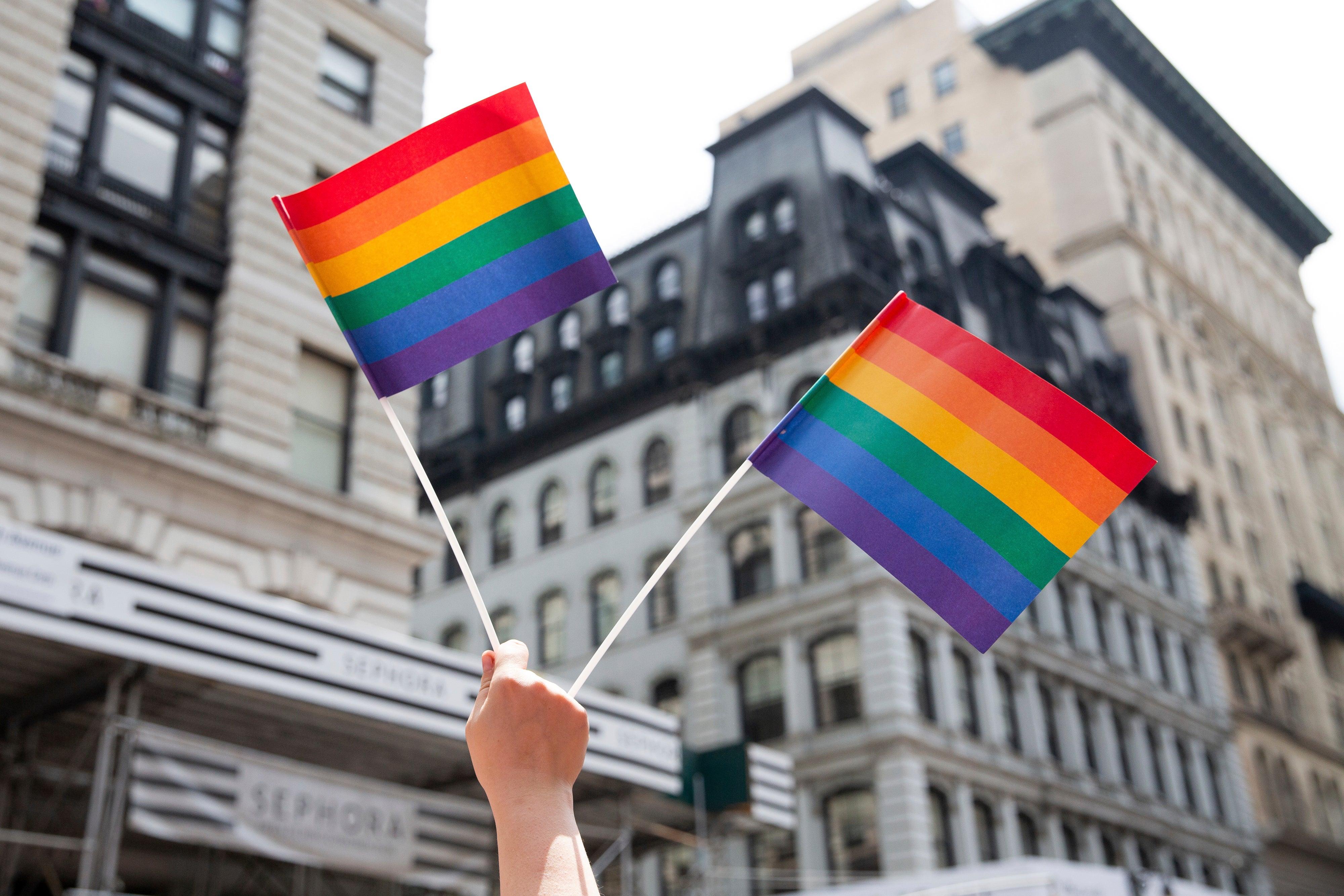LGBTQ+ rights group reports progress at U.S. companies despite conservative backlash
A national rights group says more U.S. companies are providing strong benefits and protections to LGBTQ+ employees despite conservative activists pressuring high-profile brands to stop participating in the organization’s annual workplace report card

Your support helps us to tell the story
From reproductive rights to climate change to Big Tech, The Independent is on the ground when the story is developing. Whether it's investigating the financials of Elon Musk's pro-Trump PAC or producing our latest documentary, 'The A Word', which shines a light on the American women fighting for reproductive rights, we know how important it is to parse out the facts from the messaging.
At such a critical moment in US history, we need reporters on the ground. Your donation allows us to keep sending journalists to speak to both sides of the story.
The Independent is trusted by Americans across the entire political spectrum. And unlike many other quality news outlets, we choose not to lock Americans out of our reporting and analysis with paywalls. We believe quality journalism should be available to everyone, paid for by those who can afford it.
Your support makes all the difference.A national rights group said Tuesday that more U.S. companies are providing strong benefits and protections to LGBTQ+ employees despite an ongoing effort by conservative activists to get high-profile brands to stop participating in the organization's annual workplace report card.
The education arm of the Human Rights Campaign released its latest Corporate Equality Index the day after McDonald's became the latest big company to say it would no longer provide information for the annual evaluation of policies affecting lesbian, gay, bisexual and transgender employees.
Last year, Walmart, Ford, Harley-Davidson and other consumer brands that came under pressure said they would end their voluntary participation in the grading system. The HRC rated them anyway, giving Harley-Davidson a score of 10 out of 100 and Ford a 75, for example.
The index has emerged as a top target of conservative activists as part of a broader campaign to pressure businesses into abandoning diversity, equity and inclusion initiatives that were designed to reduce discrimination against women, members of racial and ethnic minority groups, and LGBTQ+ people.
A 2023 Supreme Court decision that declared race-based affirmative action programs in college admissions unconstitutional emboldened critics of DEI programs to target universities, government agencies and corporations on social media, in the courts and in state legislatures. Some companies, including McDonald's, cited the high court precedent as their reason for curtailing diversity policies.
The Human Rights Campaign Foundation said the 2025 equality index nonetheless included 72 employers that were first-time participants, and that 765 of the 1,449 companies graded received a perfect score, 28% more than last year.
“At times, progress meets backlash, but companies continue to dedicate the time and resources to reinforcing workplace inclusion,” HRC President Kelley Robinson said in a statement. “As a result, they are more competitive and more creative while attracting and retaining top talent and widening their consumer base.”
The number of companies given official ratings included ones that have said they would pull out of the process. Some completed the organization's survey months before their decisions. The HRC said it would continue to monitor companies that drop out and assign them scores.
McDonald's was among the companies earning the top score of 100. Walmart and Lowe's both received 90 points.
The scores are based on points companies get for a range of workplace metrics, such as having anti-discrimination policies that encompass sexual orientation, gender identity and gender expression, and offering health benefits that cover same-sex spouses and the needs of transgender individuals.
This is the second index that assigned points for having gender transition guidelines that managers, transitioning employees and their colleagues can consult. More than 1,000 of the companies graded for 2025 reported adopting such guidelines, a 21% increase, the HRC said.
“Obviously, there are plenty of examples of organizations that have made some kind of announcement around retreating from some aspects of how they were doing DEI, including things like participation in this survey," said David Glasgow, executive director of the Meltzer Center for Diversity, Inclusion and Belonging at NYU School of Law. "But the vast majority of companies that were doing DEI before are still doing it. The only difference is that they’re changing some programs mostly for legal risk mitigation purposes and or doing it more quietly so that they don’t attract as much attention and scrutiny.”
The Corporate Equality Index debuted in 2002 and primarily focused on ensuring that gay, lesbian, bisexual, transgender and queer employees didn't face discrimination in hiring and on the job. Over the years, the criteria to gain a perfect score grew stricter, and experts say the Index helped improve workplace benefits for LGBTQ+ people.